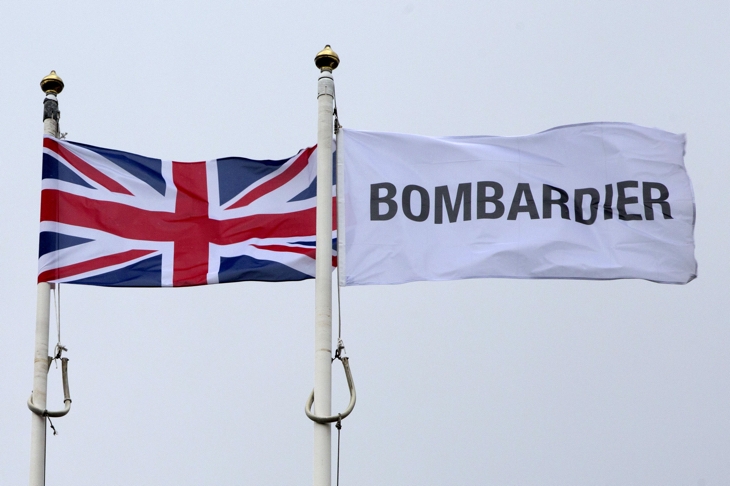When governments fall it often comes from an unexpected quarter. Thirty eight years ago, James Callaghan’s government fell not as a direct result of the Winter of Discontent but from the fallout over a failed referendum on Scottish devolution. Over the past week we have heard plenty of speculation about Theresa May losing her job thanks to her cough at Manchester or through Brexit-induced civil war in her cabinet. But could we be missing something more obscure but at the same time more ominous?
The more I think about it, the gravest danger to the government comes not from its handling of Brexit, universal credit, inflation or any of the other stories which have dominated the news agenda in the past month. It comes from the decision by the US government, at Boeing’s behest, to slap tariffs on imports of planes built by Canadian manufacturer Bombardier. First it was a tariff of 220 per cent. Then, over the weekend, the Americans introduced an extra tariff of 80 per cent, on the grounds, it says, that Bombardier has received state aid.
A dispute like this ought to be resolved by the World Trade Organisation – any member country wanting to slap a tariff on the grounds of unfair competition must be able to present the evidence. But will the government still be standing by the time the WTO delivers a verdict? Theresa May and her trade ministers have a very big political problem. They can’t do too much to upset Boeing, which supplies a lot of British military aircraft. Theoretically it can switch them off by denying the British military the codes required to operate them. It would be outrageous for Boeing to deploy this power in a trade dispute, but even so it is inevitably going to colour the government’s reaction. Moreover, Boeing employs 2,200 people in Britain and estimates that its British supply chain holds another 16,500 jobs.
Bombardier, by contrast, employs 4,200 people in Britain. If it shut up shop the economic damage to Britain would theoretically be less than that caused by Boeing withdrawing its operations here. Trouble is that those jobs are concentrated in one place, the place which is politically most problematic for the government: Belfast. Fail to stand up for Bombardier and there lies the deadly prospect of offending the DUP, whose 10 votes at Westminster are vital to propping up the government.
So far, the temperature between London and Belfast on this issue has been remarkably cool. Arlene Foster has instead directed her attentions directly at Washington. A fortnight ago she made a joint appeal with Sinn Fein leader Michelle ‘O Neill to Vice President Mike Pence claiming that peace in Northern Ireland is at stake – although their joint appearance might suggest the opposite, with Republicans and Unionists uniting against a common enemy.
But how much longer before Foster turns up the heat on May over Bombardier, and how will May react when she does? It won’t take much of a huff by the DUP for Corbyn to seize his chance and table a motion of no confidence in the government. I wouldn’t bet against this being the crisis that finally does for the Prime Minister – and her squabbling ministers, too.







Comments